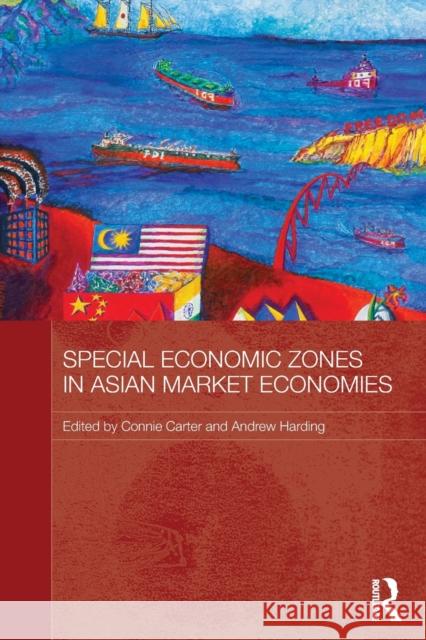Special Economic Zones in Asian Market Economies » książka
Special Economic Zones in Asian Market Economies
ISBN-13: 9780415731515 / Angielski / Miękka / 2013 / 186 str.
Special Economic Zones in Asian Market Economies
ISBN-13: 9780415731515 / Angielski / Miękka / 2013 / 186 str.
(netto: 217,85 VAT: 5%)
Najniższa cena z 30 dni: 201,44
ok. 16-18 dni roboczych.
Darmowa dostawa!
Special Economic Zones (SEZs) have proliferated rapidly during the past decade and are set to multiply in the next - embracing not only Asia and Europe but also Africa and the Americas. This book is the first to examine the Asian experience of SEZs in China, India, Malaysia and the Philippines. SEZs are usually clearly defined geographic areas in which national, provincial or local governments use policy tools (such as tax holidays; improved infrastructure; less onerous or differentiated regulations and incentives other than those generally available in the rest of the country) to attract and promote private - usually foreign - investment from enterprises which commit to create employment and to export their products or services, and generating foreign currency for the host country. SEZs have been especially successful in bringing about economic development in Asia, especially in China. This book examines the origins, nature and status of special economic zones in Asia, together with the current trends connected with them, and the challenges they currently face. Although the World Trade Organisation cast doubts in 1995 on the future of special economic zones as a viable policy tool in the development agenda, special economic zones continue to be used, and favoured, as a way of encouraging foreign investment and economic development, with for example India, trying to emulate China, reincorporating special economic zones into its development policy. This book provides regional case studies of SEZs in Asian market economies to analyse the extent to which these zones serve the changing needs of Asian development.











